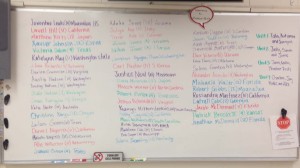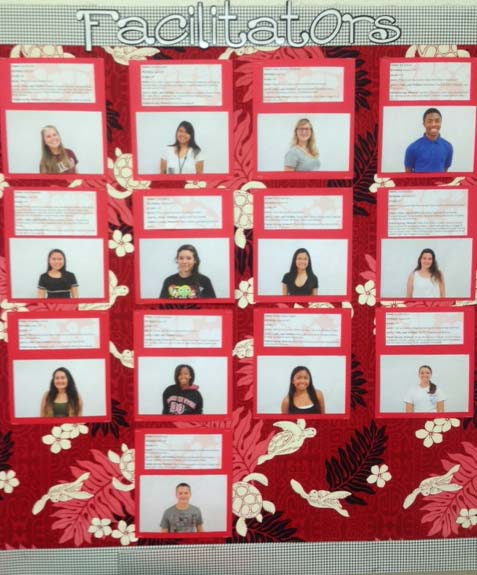
Roughly 60 percent of the Radford High School’s student body is made up of military dependents who come in from all over the world. More than 180 new students enrolled over the summer and during the first quarter, and the Transition Center team is working to make their introduction to the school as painless as possible.
“We make sure they have a place to go,” Parent Community Networking Coordinator and TC Part-Time Teacher Kari Wells said.
Fourteen student facilitators volunteer their time to assist new students as they work to ensure the integration of transfers to the school and community. In order to become a Transition Center facilitator, the student submits an application, passes an interview, and undergoes training.
“The old trains the new,” Joy McElhaney, another PTT at the Transition Center, said. “They’re given lesson plans that change every quarter.”
Facilitator Jay Horton (12) was a new student last year and recently became a facilitator.
“We give campus tours, show them where all their classes are, [and] I can be a lunch buddy for a certain day,” Horton said.
Alexander Acosta (11) moved from Fort Lewis, Washington during the middle of the first quarter, and credits the Transition Center for providing a place where he can eat.
“It helped provide a place where I can just sit quietly,” Acosta said.
Since Horton is a military dependent, he sees his role at the center as a way of supporting those who share his experience of being a new student.
“I just wanted to give back and let the new kids know that I understand how it feels to be new and that I am here to help them,” Horton said.
Facilitators spend time during recess, TASK, and lunch to assist new students. During TASK, students are invited to the center to participate in activities such as “Jeopardy” and “The Name Game” that give them the opportunity to meet other students.
“The biggest challenge for new students is making friends,” Wells said.
Horton agrees that it is difficult for new students to find a place among the Radford population.
“It’s so far from wherever they came, especially not knowing anybody,” Horton said. “But that’s what we are there for. [It’s] so they won’t be lonely and they know that there are new kids coming in almost every day.”




